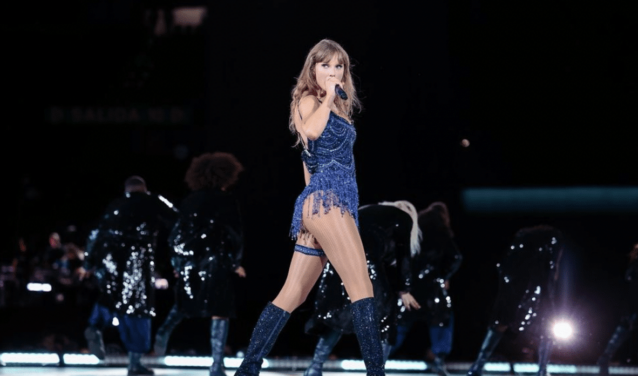Global pop icon Taylor Swift is at the center of a controversy over her use of private jets. Renowned for her talent and influence, she is now in the spotlight for less glorious reasons. The carbon footprint generated by Taylor Swift’s frequent private jet travel has drawn criticism. This raises questions about the ecological responsibility of celebrities and the impact of their luxurious lifestyles on the planet.
Taylor Swift and her private jets
Taylor Swift currently owns a Falcon 7X, a state-of-the-art trijet renowned for its exceptional performance and comfort. Built by Dassault Aviation, it is equipped with advanced avionics and state-of-the-art technology. With a range of 6,850 nautical miles, this private jet enables non-stop long-haul flights. The Falcon 7X cabin seats up to 16 passengers, and offers a spacious, quiet environment thanks to large windows. The jet’s interior is highly customizable to suit individual preferences. Taylor Swift’s jet, registered N898TS, bears her initials, a symbol of her attention to detail. The Dassault Falcon 900, although less expensive than a Gulfstream G550, remains a considerable investment, costing around $54 million. Annual operating costs are often in excess of $3 million, including all external components. Taylor Swift previously owned a Dassault Falcon 900, another model known for its superior performance and luxury. This jet could carry up to 12 passengers and had a range of 4,750 nautical miles. It offered a luxurious cabin experience with customizable interiors. The sale of the Falcon 900 thus marked an evolution in Taylor Swift’s aviation assets.
Taylor Swift: what about environmental responsibility?
The environmental impact of Taylor Swift’s private jets is the subject of much debate and concern, particularly as regards carbon emissions. In general, private jets have a higher carbon footprint per passenger kilometer than commercial flights. Taylor Swift’s Dassault Falcon 7X, despite its advanced technical features, is no exception. The CO2 emissions per flight hour of a private jet in this category are significantly higher. Taylor Swift’s frequent use of private jets for personal and business travel generates a substantial amount of greenhouse gases. These emissions come mainly from the combustion of aviation fuel, which releases atmospheric pollutants. Long-haul flights, for which the Falcon 7X is particularly well suited, are particularly problematic in terms of environmental impact, as they consume large quantities of fuel and cover long distances non-stop. In addition to direct emissions, private jets also contribute to other forms of environmental pollution. Noise and the use of non-renewable resources in aircraft manufacture and maintenance are major problems. Critics point out that, despite the aviation industry’s attempts to reduce carbon footprints through more efficient technologies and alternative fuels, private jets remain one of the least environmentally friendly modes of transport.
Taylor Swift’s celebrity controversy
Increased awareness of climate issues has led to social and media pressure on celebrities and the wealthy. They are expected to offset their emissions through green initiatives, such as reforestation, according to the public. Taylor Swift, as an influential public figure, faces high expectations when it comes to her environmental responsibility. Her actions and decisions regarding air travel are scrutinized by fans, media and environmental organizations, who hope to see a more concrete commitment to sustainable development and the reduction of her carbon footprint.
Environmentalists opposed to Taylor Swift?
NGOs and environmental groups have called on celebrities to demonstrate greater transparency and responsibility. Some are considering legal or regulatory action to limit the excessive use of private jets. Taylor Swift has not been directly prosecuted for environmental issues. However, social pressure is a powerful catalyst pushing celebrities to adopt more sustainable behavior.
Major controversies
In 2022, Taylor Swift found herself at the center of a controversy concerning her private jet travel, widely publicized by Jack Sweeney, a 19-year-old student and computer programmer. Sweeney made a name for himself by creating automated Twitter accounts, such as @CelebJets, which tracked and posted celebrities’ private jet travel in real time. These accounts used publicly available flight data to reveal the details of celebrities’ air travel. This exposure highlighted the scale of private jet travel, fueling criticism of its high carbon footprint. Mr. Sweeney’s publications triggered a virulent reaction from environmentalists and the general public alike. This highlights the contradiction between growing concern for the climate and the extravagant use of private jets by celebrities.

